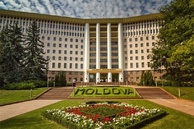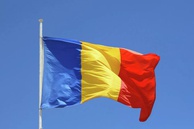On Sunday, November 3, Moldova’s incumbent President Maia Sandu won the presidential runoff, getting re-elected for a second term and accepting congratulations on her victory.
With 100 percent of the ballots counted, Sandu led with 55.33 percent, with her opponent from the Socialist Party, ex-Prosecutor General Alexander Stoianoglo, trailing behind with 44.67 percent, the Central Election Commission said. The final voter turnout exceeded 54 percent.
Of the 1.7 million citizens of Moldova, who cast their ballots in the second round, 305,000 live outside the country.
It was exactly these Moldovan expats (about 83 percent), who ensured the victory of Maia Sandu, who declares a pro-Western course for her country and a tough stand with Russia.
The outcome of the elections in Moldova, held in the wake of the recent victory of the Georgian Dream party in the parliamentary elections in Georgia, comes as good news for the West, which actively supported Sandu’s candidacy and doubled down to achieve closer ties between Moldova and the EU, as well as to break the country's ties with Russia.
The EU’s top diplomat Josep Borrell was quick to send a message of greetings to Moldova’s pro-Western president: "I wholeheartedly congratulate Maia Sandu on her victory in the presidential elections in Moldova," he wrote.
In stark contrast with Mr. Borrell’s congratulatory message, former President of Moldova and Socialist Party leader, Igor Dodon, said that “the results of the vote reflect the failed governance of Maia Sandu and her Party of Action and Solidarity, who were denied the trust of the country’s citizens.” “She has become a lame duck, the president of the diaspora, who actually failed to win the trust of half of the country’s citizens,” Dodon added.
"The vote of every citizen is an investment in the future of the country, no matter who they voted for - me or my contender Alexander Stoianoglo. I pledge to be a president for everyone," said Sandu, whose victory just a few hours earlier did not look so obvious.
With 100 percent of the ballots already cast within Moldova (excluding data from polling places outside the country) Stoianoglo, against whom three criminal cases were opened under Sandu and whom she had once fired from the post of Prosecutor General, was leading with 51.19 percent, almost three percent ahead of Sandu. In Gagauzia, Stoianoglo was a hands down winner, gaining 97 percent of the local vote, and 79.4 percent in Transnistria. He was leading everywhere, except in the capital Chisinau.
According to local experts, in the first round, Sandu had scored slightly better than the polls predicted, while Stoianoglo's result was more than twice higher than projected. The proponents of European integration also scored better among members of the Moldovan diaspora in a number of cities and villages. After the first round, even observers from the OSCE Office for Democratic Institutions and Human Rights acknowledged that the competitors had unequal conditions. In their opinion, combining the referendum on joining the EU with the presidential elections allowed Sandu to kick off the election campaign early using for this purpose the government resources available to her. As a result, the Moldovan Central Election Commission stated that they would conduct an analysis and propose amendments to the country’s Electoral Code.
It was not until the results of the first round vote were announced that the authorities realized that Moldova was poorer than ever, and that amid their frantic effort to solve foreign policy problems and fend off “Russian influence” they had forgotten about the people. Promises of additional social payments and payment of wage arrears to state enterprise workers started coming thick and fast with Sandu now promising that after her victory she would reshuffle the government, whose work she had previously lauded as excellent.
It is well worth mentioning that in the first round, held two weeks ago, Maia Sandu garnered 42.5 percent of the votes, with Alexander Stoianoglo trailing behind with about 26 percent.
On the same day, October 20, a referendum was held about Moldova’s European integration. The number of people voting for the country’s European integration almost equaled the number of those who voted against. EU membership was supported by 50.39 percent of voters, while 49.61 percent voted against.
Now, after Stoianoglo's defeat in the second round, there have been assessments of his election strategy, with commentators admitting his failure to lay bare the falsity of the notion imposed on Moldovan voters by Sandu's political strategists about some dark forces acting behind the opposition candidate that do not wish Moldova well.
"I voted for a stable and prosperous Moldova that develops in harmony with the East and the West. Moldova is not just a dot on the map, and we are not passive spectators, but a responsible people who are aware of their future," Alexander Stoianoglo said following the publication of the election results.
Meanwhile, the Socialist Party of Moldova, which Alexander Stoianoglo ran for, has already called Sandu an “illegitimate president.” In a statement, the party says that the recent elections cannot be called a free and democratic expression of the will of the people, and international observers in the first round “identified mass cases of the country’s authorities using administrative resources, forced mobilization of public sector workers, and unequal access of candidates to the media.”
“Alexander Stoianoglo won a genuine victory in the presidential elections in Moldova. 51.19% of Moldovans voted for him – people working here or receiving pensions here, paying taxes and utility bills here, raising children here, living with the country’s problems. The majority of Moldovans voted against the policies of the current government. Maia Sandu became the “president of the diaspora.” The Party of Socialists of the Republic of Moldova does not recognize the voting at foreign polling stations, thanks to which Sandu was declared the winner of the elections,” the party said, pledging to work out, together with other opposition forces, a new action strategy.
That being said, Moldova’s incumbent president retained her powers for another term, and the pro-Western forces won the November 3 elections, although with great difficulty and despite questionable voting results.
It is worth recalling that Maia Sandu aspires to make her country a member of the EU and NATO ASAP. However, one of the options for fast-tracking this issue could be Moldova’s integration into Romania. Neither Transnistria nor Gagauzia will accept this, and these elections, along with the referendum, demonstrated that popular consensus on such issues will not happen any time soon.
Moldovans have much to complain about Sandu herself, primarily when it comes to socio-economic issues. Moreover, her approval rating is pretty low (over 60 percent of people are critical of her performance), and she is particularly negatively viewed by pro-Russian voters, who account for almost half of the country’s population. The majority of Moldovans want to have good relations with Russia and be friends with both Moscow and the West. A significant portion of society is against any anti-Russian actions that could provoke a resumption of a conflict similar to the Transnistrian one. Sandu's unconvincing victory in the recent presidential elections could have serious political consequences for her. The Socialist Party, as promised, will surely try to rally behind itself the motley opposition to Sandu's regime ahead of the parliamentary elections slated to be held less than a year from now. According to the Constitution, the country's government and the prime minister are appointed by the parliament. This is the country’s highest legislative body, whose powers supersede those of the president. This means that the presidential elections that have just ended were only a rehearsal ahead of the main political battle for parliamentary seats and the mandate to govern the country. Even though Sandu's PAS party now has a majority in parliament, it is still going through hard times, as is evident from public opinion polls. Many local political scientists believe that the presidential party will face even more problems after the parliamentary elections and that Sandu's top-down command structure will not be able to fully control the political processes in the country.
All these factors may force Sandu and her party to scale down their pro-Western and pro-Ukrainian rhetoric and, while constantly declaring a pro-European course, to gravitate towards a moderately neutral position, like, for example, the Georgian Dream, or the policy of the Slovak government of Robert Fico. That is, the main goal will be defined as “preserving peace in Moldova,” there will be calls for “an early ceasefire in Ukraine,” and the number of previous harsh attacks on Russia will go down. At the same time, the protracted economic crisis and the people’s latest electoral preferences show that in the upcoming elections, Sandu’s Party of Action and Solidarity will most likely lose its parliamentary majority and she will find it hard to cobble together a coalition around herself to form a government. As for the coalition, if they manage to move from confrontation to unification and show well in the parliamentary elections, they will probably keep telling people that “Sandu wants to drag us into a war with Russia, and we will be friends with everyone – Moscow, Europe, Kyiv, and also with Bucharest.” Regarding the key territorial issue, it will be like “the most brotherly relations will be established with Transnistria.”
An estimated 300,000 to half a million Moldovan citizens live and work in Russia. Today, they are torn away from their homeland and are becoming hostages to official Chisinau’s anti-Russian course. During the November 3 elections, “those responsible for the election results” outside the country allowed this huge number of their citizens to vote at just 2 polling stations in Russia, printing a mere 10,000 ballots for them. Just compare this to 60 polling stations opened on election day in Italy.
Not a day goes by without officials from the ruling party not churning out negativity towards Russia, deepening the split in Moldovan society, disorienting their own citizens and drawing them into an internal political war.
“Moldova has never been like this. Too many people have been deceived and insulted. “I have no idea how a robber and a robbed person can live together in the same room,” says Moldova’s former Deputy Foreign Minister Valeriu Ostalep, insisting that President Maia Sandu has divided society into two irreconcilable camps.
“What Sandu has managed to do is to divide society into two rather irreconcilable camps. Because since [the Nov. 3] elections the opposition has been completely destroyed (many of them don’t know this yet, but they can already forget about politics), what Sandu and her PAS party are going to do with half the country that will not accept the other is an absolutely unsolvable task,” Ostalep wrote on his Telegram channel.
"The Moldovan elections are a disgrace and a sham. Obviously, the president, unpopular with the people, was pushed through to a new term by her Western masters. Sandu received the decisive votes at the expense of the Moldovan diasporas in Western countries, just like in the case of the voting in the referendum on European integration. Moldovans living in Russia were effectively limited in their active voting rights, not to mention the outright blocking of access to polling stations for residents of Transnistria," said Leonid Slutsky, Chairman of the Russian State Duma Committee on International Affairs.
The views of the author are his own and may differ from the position of the Editorial Board.
read more in our Telegram-channel https://t.me/The_International_Affairs

 10:27 08.11.2024 •
10:27 08.11.2024 •


























